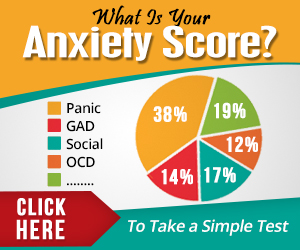One of the more common questions I’m asked is how to cope with anxiety while driving. People have many different fears in this area, ranging from fear of being caught in traffic to crossing waterway bridges. Often the anxiety stems from a fear of being trapped in the vehicle in gridlock traffic or losing control of the vehicle and causing a collision. Needless to say, even though they may have been battling a driving phobia for many years, almost all of the people I’ve consulted with have not actually had any of these mishaps occur. Let’s look at the primary
Read more
Even when you’ve made significant changes to your lifestyle and have accepted the fact that you experience panic and anxiety attacks, a panic attack can happen at any time and throw you for a loop. Many people that experience panic attacks on a regular basis find it difficult to undertake new activities, maintain a healthy social life, and participate in activities that will improve their lifestyle because they are afraid of having another panic attack and being unable to cope with its effects. The good news is, there are several ways to re-balance or “ground” yourself after a panic attack
Read more
Many people who have generalized anxiety disorder, and those that experience high levels of anxiety or panic attacks on a regular basis, struggle with sustaining a productive and balanced lifestyle. Simple activities such as driving a car or going shopping can create very strong feelings of anxiety, and may even lead to a panic attack. A fear of driving or driving phobia is a common side effect of anxiety disorders for many people, but there are some ways to overcome it so that day-to-day living doesn’t become so overwhelming. Driving phobia is defined as an intense fear of driving a
Read more
If falling asleep has become one of the most challenging parts of your day, you’re not alone. Thousands of people that suffer from anxiety and panic attacks find it very difficult to end their day comfortably and may not be getting enough high quality sleep on a regular basis. Sleep deprivation not only makes you more irritable and tired the following day, but may also be the reason why you’re experiencing high levels of anxiety on a regular basis. Fortunately, there are some ways to sleep better tonight, and every night. I talk more about ways to break out of
Read more
For many people who suffer from panic attacks and experience high levels of anxiety, mornings can be a particularly stressful time of day. Some people find themselves always getting up in a frantic state, while others feel very depressed and experience a heightened state of worry upon waking. If mornings are particularly difficult for you, you need a strategy for getting your day off to a healthy start. I talk more about starting the day right in my book, Panic Away, and you can start implementing these strategies right away: 1. Start with a light stretch. Stretching will help increase
Read more
Do you wake up in a highly anxious state? Is it hard for you to focus and get control over your thoughts after a meal? If the answer is yes, one of the critical links related to your anxiety could be traced to your diet and your blood sugar levels throughout the day. If you have a history of diabetes or other health conditions that cause low blood sugar, you may be more vulnerable to high anxiety, stress and even a panic attack at certain times of the day. Many people who are suffering from hypoglycemia experience anxiety on a
Read more
For many people suffering from high levels of anxiety and frequent panic attacks, enjoying a peaceful state of mind seems like an impossible task. The constant mental activity can make it very hard to focus and concentrate. The constant mental activity can also be the root cause of an imbalance that leads to stress, frequent anxious thoughts and even compulsive behavior. I’ve found that one of the easiest ways to reduce anxiety is to deliberately shift your attention from your head, to your heart. You can do this simply by practicing the “art of gratitude” which I talk about in
Read more
Alleviating mental anxiety you experience upon waking isn’t always easy. How often do you get up in an anxious state? Do you feel calm and well-rested when you first wake up, or is your mind just reeling with thoughts and ideas? If you suffer from frequent anxiety attacks and panic attacks, it’s likely that you experience a high level of stress and anxiety shortly after waking. The good news is, you can use this energy in a positive way and clear out those mental blocks before you tackle the day ahead. Julie Cameron talks about writing “Morning Pages” in her
Read more
Are you dealing with exhaustion, fatigue and feelings of malaise on a regular basis? High levels of anxiety and frequent panic attacks could be to blame. Many people who experience the unusual sensations associated with panic disorder soon learn that the physical effects of the adrenaline boost experienced during a heightened state of anxiety can take their toll on their energy levels. Anxiety is simply a response to a danger or threat, and we all experience varying levels of anxiety throughout our day based on what our brain and body is sensing is happening to us. We’re all equipped to
Read more
I think everyone that has experienced regular panic attacks has had this thought at one stage or another. It is directly connected to fear of losing control and freaking out. People’s imaginations run riot with ideas of losing mental control and doing something totally out of character and then as a result get locked up in a padded cell because of their strange behavior. When you experience high anxiety and panic your mind is not able to think rationally. The idea of being committed seems ridiculous to the non anxious mind but when your mind is operating from a high
Read more
Sometimes people have the impression that their experience of anxiety is like being hooked up to an electroshock machine and that it just takes a flick of the anxiety switch to cause a flood leading to a full blown panic attack. People in this situation often feel that are lucky to make it through the day without that switch been flicked but in the back of their mind they fear that it could happen at any moment day or night. They remain on high alert anticipating it. Anticipating the big one! In fact most people who experience panic attacks fear
Read more



